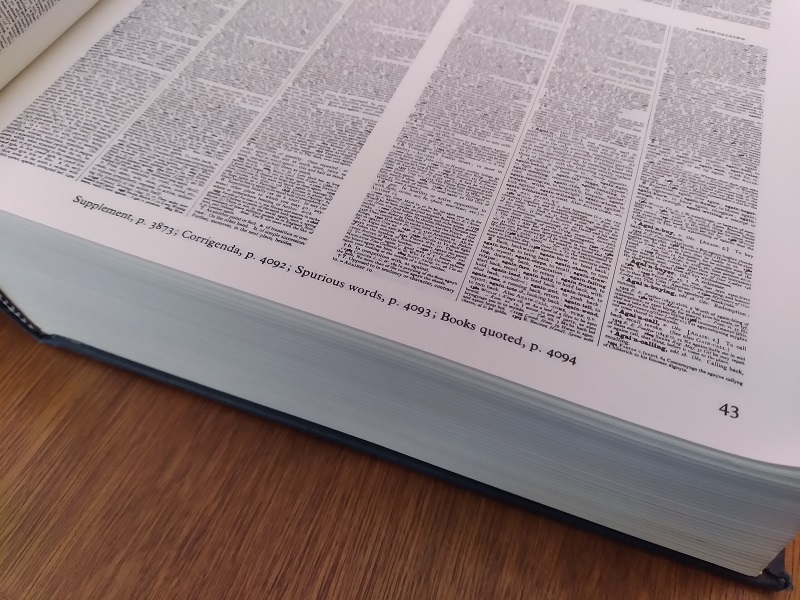
After a public vote involving over 37,000 participants, Oxford Languages has officially named ‘brain rot’ as the Oxford Word of the Year for 2024. This decision reflects the evolving
conversations and cultural shifts of the past year.
How the word was chosen
A shortlist of six words was curated by Oxford's language experts, aiming to capture the year’s defining trends and discussions. Following two weeks of public voting, the expert panel reviewed the results alongside broader linguistic data before selecting ‘brain rot’ as the standout term.
What does ‘brain rot’ mean?
‘Brain rot’ is defined as the perceived decline in mental or intellectual well-being, often attributed to consuming trivial or unchallenging material, particularly online. The term can also describe the type of content that is seen as causing this effect.
This year, the phrase gained prominence as concerns about the impact of overindulging in low-quality digital content—especially on platforms like social media—grew significantly. Its usage increased by a staggering 230% between 2023 and 2024.
A historic and modern term
While the term feels particularly modern, its roots date back to 1854 when it was first recorded in Henry David Thoreau’s Walden. Thoreau criticized society’s preference for simplicity over complexity, describing this tendency as indicative of a “brain-rot” far more widespread and damaging than physical decay.
In the digital age, ‘brain rot’ has found renewed relevance. Over the past year, it has been widely used on platforms such as TikTok, particularly among Gen Z and Gen Alpha users. Its humorous or self-deprecating tone often accompanies discussions about social media habits or low-effort online content. However, it has also been adopted in serious conversations about the effects of excessive screen time on mental health, particularly for younger audiences.
Online culture and viral trends
The term is strongly associated with specific types of viral online content. For example, creator Alexey Gerasimov’s Skibidi Toilet video series—featuring bizarre humanoid toilets—and ‘only in Ohio’ memes have been central to this trend. Such content has contributed to the rise of what some call "brain rot language," with terms like ‘skibidi’ (denoting nonsense) and ‘Ohio’ (meaning weird or embarrassing) crossing over into mainstream usage.
This year also saw mental health professionals addressing the issue more seriously. For instance, a U.S.-based mental health center published guidelines to help parents identify and mitigate the effects of ‘brain rot’ in children and teens.
Oxford’s perspective
Casper Grathwohl, President of Oxford Languages, commented on the significance of this year’s selection:
“It’s been insightful and deeply moving to see language lovers all over the world participate and help us select the Oxford Word of the Year 2024.
“Looking back at the Oxford Word of the Year over the past two decades, you can see society’s growing preoccupation with how our virtual lives are evolving, the way internet culture is permeating so much of who we are and what we talk about. Last year’s winning word, ‘rizz’, was an interesting example of how language is increasingly formed, shaped, and shared within online communities. ‘Brain rot’ speaks to one of the perceived dangers of virtual life, and how we are using our free time. It feels like a rightful next chapter in the cultural conversation about humanity and technology. It’s not surprising that so many voters embraced the term, endorsing it as our choice this year.
“I find it fascinating that the term ‘brain rot’ has been adopted by Gen Z and Gen Alpha, those communities largely responsible for the use and creation of the digital content the term refers to. These communities have amplified the expression through social media channels, the very place said to cause ‘brain rot’. It demonstrates a somewhat cheeky self-awareness in the younger generations about the harmful impact of social media that they’ve inherited.”
A cultural milestone
As Oxford Languages celebrates 20 years of naming a Word of the Year, this selection marks a significant moment in the ongoing cultural conversation about humanity’s relationship with technology and the digital world. To learn more about the 2024 shortlist and past winners, visit Oxford Languages’ Word of the Year archives. Photo by Araesmojo, Wikimedia commons.









































